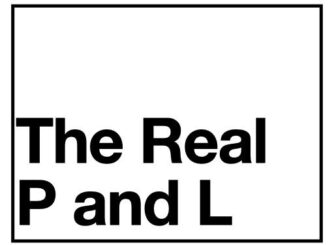Zero to One is a collection of thoughts, ideas, and notes from a class Peter Thiel taught at Stanford about startups. Peter Thiel is one of the co-founders of PayPal and has stayed prominent in Silicon Valley and the investing community. From this course, a student, Blake Masters, shared his notes which were widely circulated.
Thiel says in the introduction of Zero to One that this book isn’t a formula on how to create a business. He writes about the paradox of teaching entrepreneurship. “This book offers no formula for success. The paradox of teaching entrepreneurship is that such a formula necessarily cannot exist; because every innovation is new and unique, no authority can prescribe in concrete terms how to be innovative.”
He believes making an incremental improvement on a process isn’t as valuable as creating something new. “Doing what we already know how to do takes the world from 1 to n, adding more of something familiar. But every time we create something new, we go from 0 to 1. The act of creation is singular, as is the moment of creation, and the result is something fresh and strange.” Incremental improvements are needed, but it isn’t what’s going to push society forward.
Dot Com Lessons
One of the most valuable parts of the book was his lessons from the dot com bubble. PayPal was able to make it through the period and now is a $315B company. Many companies flamed out, so I put weight behind what he says because PayPal has been a model of success.
His four lessons are:
- Make incremental advances
- Stay lean and flexible
- Improve on the competition
- Focus on product, not sales
The lesson I enjoyed the most was “Improve on the competition.” Thiel doesn’t think it’s prudent to create a new market from the start, which is counterintuitive to what I thought startup culture should be. It’s better to start with an existing market and then improve existing products. From there, your business can continue to grow.
The Question to Ask
Thiel asks the question, “what valuable company is nobody building?” If you have an answer, then that is what you should build. To me, it’s an excellent first step in the process of creation. Much easier said than done, but an important question that will help guide the start up.
Characteristics of Monopolies
He has an interesting perspective on monopolies. Thiel thinks of a “monopoly” as a company that is able to do something so well that no other company can compete. For example, no other company can really compete with Google with search.
He thinks a company can achieve this status by solving unique problems. This isn’t supposed to be a checklist of how to become a monopoly, rather common characteristics he found:
- Proprietary Technology
- The technology a company has needs to be 10x better than the closest substitute.
- A customer shouldn’t think about anyone else.
- Network Effects
- The product is better as more people use it.
- For him, PayPal became a better product as more users joined because you could send money to more people.
- Economies of Scale
- There shouldn’t be a cap on the number of customers.
- Build one product that can scale with more customers for greater efficiencies.
- Branding
- A 10x better product compared to competition still needs to be at the heart of the company.
- Branding can help distribute at a quicker rate.
- Product first, brand second.
He also thinks that real “monopolies” downplay their status while unsuccessful companies try to boast about how large their market can be. For Google, they would want to explain away their control on advertising by saying that digital advertising is only a small portion of the whole advertising industry (e.g., print, television). A company that is struggling will try to explain how they can take over everything.
Building a Monopoly
After describing the characteristics of a monopoly, he talked about how to create one:
- Start small and monopolize
- Start on the side of being too small; small group of particular people concentrated together and served by few or no competitors
- Scale up
- Amazon started with just books
- eBay focused on collectibles
- Don’t disrupt
- The act of creation is far for important than trying to make a full industry obsolete
- If a company focuses on “disruption”, they are looking outward and are focused on others, not building a great product
- The last will be the first
- A company wants to make the last great development in a market
- It’s not always the best to be first
Conclusion
All in all, I think there are some very useful insights from this book, but as Thiel said from the top, there is no handbook or exact formula to copy. Challenges that PayPal had might be completely different from what your startup might face, but he does bring a wealth of knowledge and experience to the table.
The idea of going from 0 to 1 is a skill I need to harness. I am comfortable working from 1 to n, but what new thing out there needs to be done? That is when the world is able to take a step forward.
Peace and Love
